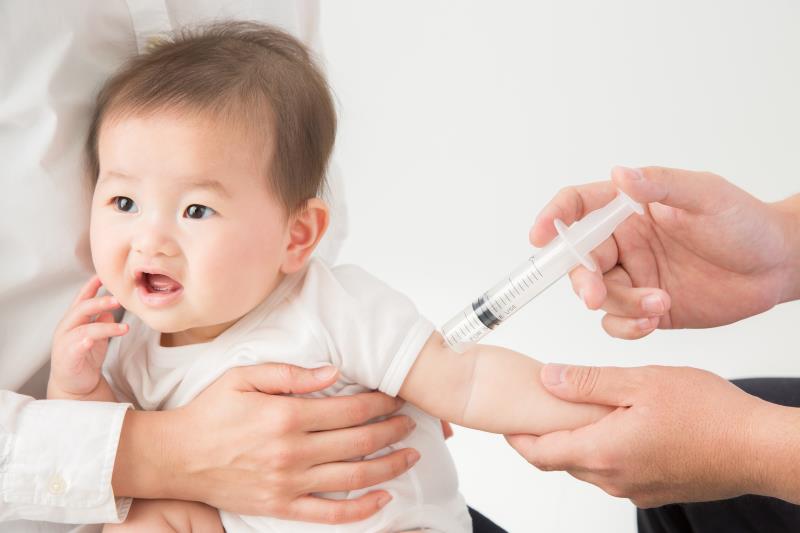
Many children in Singapore may not be vaccinated according to the national recommended immunization schedule, with maternal age, ethnicity, household income, and number of siblings among the factors influencing non-adherence, according to findings from the GUSTO* study.
“In this cohort of children, approximately nine in 10 children had a delay in the recommended time to receive at least one dose of vaccine by 2 years of age. Approximately one in seven children received all series of vaccine outside the recommended age ranges,” said the researchers.
The study population comprised 782 children born between November 2009 and July 2011. Mean maternal age was 30.6 years and 51 percent were of Chinese ethnicity. Mean gestational age was 38.3 weeks at birth, with 8.3 percent of children considered low birth weight (LBW). Vaccination records, from birth to 24 months, were obtained from the National Immunization Registry of Singapore.
Delay in vaccinations from that recommended in the national immunization schedule was common, with 92.8 percent of children delaying ≥1 vaccine dose by age 2 years, and 15.6 percent of children receiving all series of vaccine outside the recommended age range (non-timely vaccination). Non-timely receipt of vaccination was most common with the pneumococcal vaccine (94.6 percent of children receiving the first and/or second dose outside the recommended age) and the measles-mumps-rubella (MMR) vaccine (87.6 percent).
Younger maternal age (≤35 years) was tied to an increased risk of non-timely receipt of all vaccine series (odds ratio [OR], 2.00, 95 percent confidence interval [CI], 1.09–3.66; p=0.026), as was being of Malay or Indian ethnicity (OR, 1.71, 95 percent CI, 1.01–2.89; p=0.045 and OR, 2.06, 95 percent CI, 1.19–3.59; p=0.010, respectively, vs Chinese ethnicity). [Prev Sci 2020;doi:10.1007/s11121-019-01078-2]
Other factors tied to non-timely receipt of all vaccine series were a low monthly household income (<SGD 1,999; OR, 1.91, 95 percent CI, 1.14–3.18; p=0.014 vs SGD 2,000–5,999/month), having ≥4 children (OR, 3.46, 95 percent CI, 1.62–7.38; p=0.001), and receiving vaccinations from private or multiple healthcare providers (OR, 3.42, 95 percent CI, 1.80–6.48; p<0.001 and OR, 3.91, 95 percent CI, 1.23–12.48; p=0.021, respectively).
“Children from low-income families may have competing needs, fall sick more frequently, and face difficulties in getting timely vaccinations,” said the researchers. Children with multiple siblings may have to share parental time and have divided attention, they added.
LBW was also tied to an increased likelihood of non-timely receipt of all vaccines, but this finding was not significant (OR, 2.00, 95 percent CI, 0.95–4.23; p=0.069). Children with LBW may require long-term care for medical issues which could interfere with the vaccination schedule, said the researchers.
“We also found that when children received the first dose of vaccine in each vaccination series in a timely manner, they were less likely to receive non-timely vaccinations for subsequent vaccine doses,” they noted.
The National Childhood Immunization Programme in Singapore recommends vaccination against 11 diseases by age 2 years, with vaccination against measles and diphtheria compulsory by law. [National Childhood Immunisation Schedule, available at https://www.nir.hpb.gov.sg/nirp/eservices/immunisationSchedule, accessed 14/02/2020]
While published reports reveal vaccine coverage by age 2 years and primary school age, adherence to recommended vaccination schedules remains in doubt, said the researchers. “[S]uch data can help the development of targeted efforts to improve immunization programmes in children.”
For example, the higher risk of untimely vaccination in the Indian and Malay communities, as seen in this study, highlight “the need to have targeted interventions for these population groups,” they said.